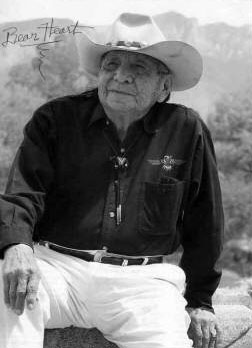The Importance of listening and tomatoes in Zambia
Do you know how to listen? I meet new people all the time through my work and travels and I’m amazed at how many of them just don’t listen to anyone else.
Having been taught good manners by my parents, and being Irish, who are a hospitable people, I always attempt to strike up a conversation when I meet someone new.
I ask their name, and where they’re from and what they like to do. Whatever it takes to build rapport and learn something about them.
But I have noticed how many people just talk about themselves and show no interest in learning about me. It’s astounding to me how many people just don’t seem to know how to listen.
Read on to find out what can be learned from listening and how to do it.
The Power of Observation
Native American youth were taught the power of observation from an early age. Good observation can have many benefits in our life, as demonstrated in this lesson from Muskogee Creek Elder Bear Heart in The Wind Is My Mother.
“As part of my training, one of my teachers had me spend an entire day doing nothing but observing from early morning to evening. I had to sit in a field all day long without moving my body — he told me to just move my eyes very slowly from side to side.
“What was I observing? What direction is the wind coming from? Does that cloud seem to contain any large amounts of moisture? Is it dark on the underside and light on top? If so, perhaps it’s going to rain.
“If you see birds flying, are they circling or going in a straight line? Are they water birds flying to where there might be some water? If you’re looking for water, perhaps you should head in that direction.
“There didn’t have to be any particular significance to all the things I observed — the point was not to let anything escape my awareness, to master the difference between looking and seeing.
Elephants never forget
Did you ever wonder where the saying, “elephants never forget” comes from?
A 2000 PBS documentary presents a striking example of elephant friendship.
The documentary “The Urban Elephant” brought viewers the touching story of Shirley and Jenny, two crippled elephants reunited at The Elephant Sanctuary in Tennessee after a 22-year separation.
Shirley, a former circus elephant, had lived for two decades in a zoo without the company of another elephant, and with a chain around her leg.
Her reunion at the sanctuary with her old friend Jenny is an astounding example of the way our four-legged friends can experience friendship, love and compassion as profound as that of humans.
Competition and the pink ribbon
Quite some time ago, when I subscribed to Horse illustrated, I read a letter to the editor that brought home the lesson of how much children have to teach us about competition.
It never fails to bring a tear to my eye; I hope you enjoy it, too.
Here it is, in its entirety, as written by Rhonda Goddard of Louisville, CO:
“Competition is essential. We learn from it, our characters are shaped by it, and we crave the rivalry. This competitive spirit is quite evident in the horse show world; few participants are unaffected by its influence.
“I am one of many who experience the thrills, woes and obsessions that accompany showing. Like my competitors, I coordinate my season zealously, selecting the right judges, attending the correct shows, and accumulating the most points in order to achieve my self-imposed goals – high point awards, year end placings, regional and national show qualifications.
“I am driven to attain these accomplishments by nothing more than my own desire to ‘succeed’. It took a child to remind me, however, that participation, good sportsmanship, and just plain enjoyment must always be my highest priorities.
“For several years I have judged the annual show for the Colorado Therapeutic Riding Center in Lafayette, CO. The show hosts a variety of events, including English and Western Equitation, Trail, and Dressage, as well as fun classes such as Egg in Spoon.
“Each time I judge this show I am reminded that I do not have problems, but rather minor inconveniences, in comparison with the difficulties these students must overcome.




